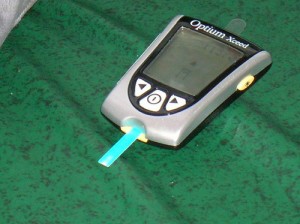
Originally posted on November 30, 2006 @ 3:38 pm
A healthy body and a sound mind

Originally posted on November 30, 2006 @ 3:38 pm
An alleged father or mother do not have to sit and wonder whether or not a child is really his or hers. There are actually a few different options that parents can choose from to reveal a child’s paternity. Some parents might choose to do this in order to affect things like child custody or child support. When being used in a custody or child support case, there may be certain laws regarding DNA collection. Before having any testing done, parents should make sure they understand how the results of the test can be used or if they will hold up in a court case. Three common types of paternity testing are home kits, laboratories, and a prenatal paternity test.
Home DNA Test Kits
A home test kit is simple and easy to use. All it takes is finding a reliable company that can ship the kit to you. If you know you want a laboratory to process the DNA samples, you will need to pay the lab fee. Some companies will initially send you a free kit thats private and confidential. Should you choose to use it, you pay the lab fee later. Many home testing kits can still provide reliable results. You collect the samples yourself, often by just swabbing the cheek of the people in question, then mail the kit to the lab for testing. Once the test results are in, the lab mails them back to you.
Originally posted on April 15, 2014 @ 3:07 pm
Many couples who can’t manage to conceive by themselves often turn to fertility clinics to help them to have a child. One of the most common ways that fertility clinics help is by performing in vitro fertilization (IVF). Since the first baby born by IVF – Louise Brown – came into the world in 1978, there have been enormous advances in the field, but the technique still isn’t always successful. In fact, a study done in the UK showed that only about 24% of women who have an IVF embryo implanted actually give birth to a live baby. This type of rate is not specific to the UK – if you are looking for a reproductive endocrinologist Kansas City success rates are likely to be quite similar.
However, it looks like there may be some new hope on the horizon – and again, it is coming from the UK. The use of IVF is very widespread there, with about 60,000 couples having the treatment each year. Because of this, there is a lot of research carried out in the UK on IVF, including at a number of UK fertility clinics. One of those, CARE Fertility Group, now seems to have made a breakthrough that may raise the success rate for IVF to as high as 78%. [Read more…]
Originally posted on January 16, 2014 @ 7:12 pm
 Studies have shown that pregnant women and new mothers that have diabetes are in far greater risk for developing post partum depression (PPD). Though the reason for the higher risk is not yet exactly known what is known is that out of 11,000 women who were enrolled in New Jersey’s Medicaid program 15.2 percent of those that had diabetes became depressed during pregnancy or up to a year after birth. The percentage of diabetic women who did not suffer from postpartum depression is significantly lower at only 8.5 percent.
Studies have shown that pregnant women and new mothers that have diabetes are in far greater risk for developing post partum depression (PPD). Though the reason for the higher risk is not yet exactly known what is known is that out of 11,000 women who were enrolled in New Jersey’s Medicaid program 15.2 percent of those that had diabetes became depressed during pregnancy or up to a year after birth. The percentage of diabetic women who did not suffer from postpartum depression is significantly lower at only 8.5 percent.
What this means for expectant mothers is that if routine diabetes tests give you a positive result you should also discuss with your doctor the possibility of post partum depression and ways to prevent and manage problem. This is very important because post partum depression IS treatable. Since the disorder is underdiagnosed, by being aware and discussing with your doctor the risk factors involved, in case you end up suffering from PPD chances of it going undetected will be minimized, which in turn means fast help for you.
The link between diabetes and depression has already been studied before but it is only now that the figures for diabetes and PPD have come out.
Photo via MsH_ISB
Originally posted on June 9, 2011 @ 1:39 pm